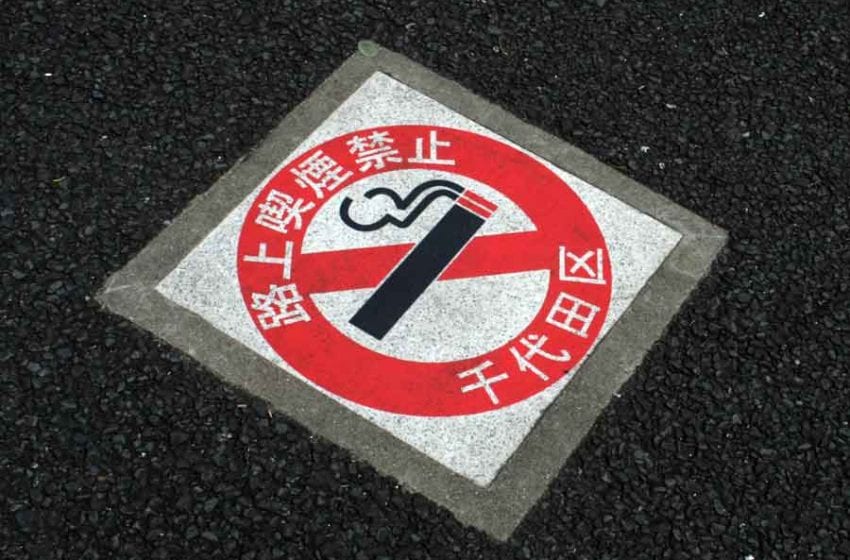The Chiba Municipal Government is following the lead of Tokyo by seeking to make the majority of eating and drinking establishments in Chiba smoke-free, according to a story by Hiromi Kumai for Asahi Shimbun.
Chiba officials have drafted regulations that would prohibit smoking inside eateries where at least one employee is working, regardless of the dimensions of the premises – regulations that are similar to those of Tokyo’s ordinance.
The Government estimates that about 70 percent of the approximately 3,200 dining establishments in the city will be subject to the new regulation, though the percentage will drop to 66 percent if bars or taverns are excluded.
Chiba officials, who sought opinions from the public, aim to have the anti-smoking law in place no later than the 2020 Tokyo Olympics and Paralympics are due to take place.
By comparison, under a central government bill, smoking is prohibited in principle at eateries, offices and hotels. But such facilities may set up special rooms for the exclusive use of smokers – albeit rooms where no food or drink will be served. Existing eateries with customer seating areas of up to 100 square meters and capital of up to ¥50 million are exempted from the smoking ban and are not required to set up separate smoking areas if they display a sign in front of their buildings indicating that they allow smoking.
The central-government bill restricts also the use of heat-not-burn products by requiring eateries to set up special smoking rooms if they want to allow their customers to use such devices while they dine.
The Tokyo measure will cover an estimated 84 percent of restaurants and bars across the capital, whereas 45 percent are likely to be regulated by the national law.
The new Tokyo ordinance is said to seek to protect the well-being of those deemed vulnerable, particularly children and employees, with a ban on tobacco smoking on public-facility premises, such as kindergartens, schools and day care centers.
Although tougher than the national legislation, the Tokyo ordinance stops short of banning smoking in all facilities.
A less stringent measure, for example, will apply to the premises of institutions such as universities, hospitals and government offices, where smoking can be allowed in designated areas outside buildings.
Among those subject to the most relaxed regulation are gyms, hotels and some eateries, where only indoor smoking will be outlawed. And even inside, people will be able to smoke tobacco in segregated rooms specially equipped to prevent smoke from leaking out.
Tokyo’s ordinance is set to take effect from April 2020, just a few months before the start of the Olympics.
Chiba’s proposed ordinance will regulate all restaurants and eateries with at least one employee, though smoking will be permitted in smoking areas.
Under the Chiba ordinance, however, bars or taverns that are subject to the law regulating adult entertainment businesses will be required only to make reasonable efforts to comply. They will not merit punishment for the time being based on the belief that smoking at such drinking establishments is socially accepted.
However, the regulation will be strengthened for such alcohol-related establishments after the prohibition against lighting up becomes customary at restaurants and eateries.
Restrictions spreading











